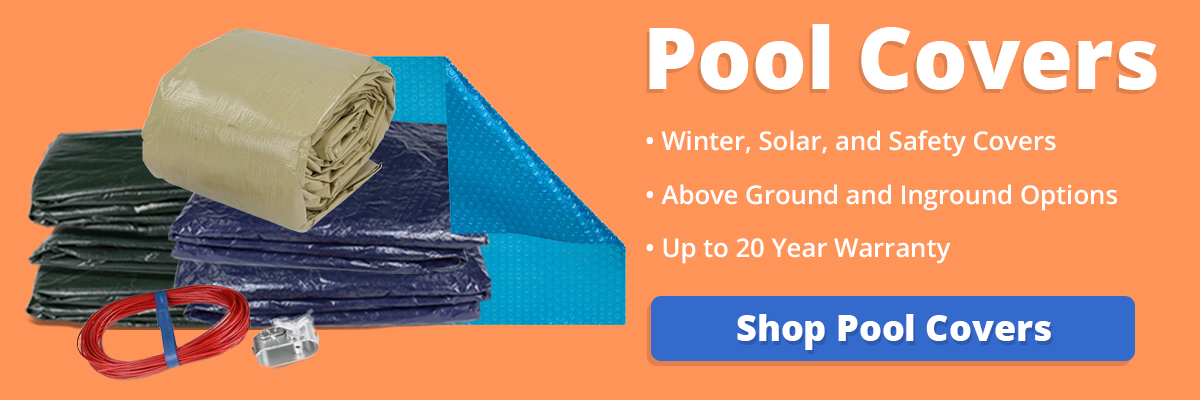In most parts of the country, the inevitable end of summer’s warm weather will arrive. And unless you’re a polar bear, you’ll want to close your pool until the spring. Properly closing above ground pools protects them from debris and harsh winter weather. This helps reduce the time and money needed to open your pool in the spring. You’ll also eliminate additional electrical and chemical costs by closing the pool and avoid possible freeze damage to equipment and plumbing. Follow the steps below for winterizing your above ground pool.



InyoPools Product Specialist Dennis R. Posted: 11/18/2014
AG Pool in winter- Most pool manufacturers recommend keeping your pool mostly full during the winter to keep it from heaving up during a winter freeze and to keep the wall from buckling in.Reply
Anonymous Posted: 11/17/2014
Can You Leave a Aboveground pool full in winter.Reply
Anonymous Posted: 10/25/2014
I wasn't sure on how much water I should have in my pool when closing it, glad I stopped on your site, other sites did not give this information. I had already added the winterizing kit, but my water level was to low, I think by adding water I'll be okay. Also helpful on the pillow, I just let it float about, since the pillow didn't come with instructions, so I will take the cover off and secure the pillow to the middleand readjust the liner to a fuller pool. Thank you. Ellen BowserReply
InyoPools Product Specialist Dennis R. Posted: 9/27/2014
AG Pool in winter- Most pool manufacturers recommend keeping your pool mostly full during the winter to keep it from heaving up during a winter freeze and to keep the wall from buckling in.Reply
Anonymous Posted: 9/24/2014
I emptied my pool before researching the proper way to shut it down for the winter, so what do I need to do to protect my liner?Reply
InyoPools Product Specialist Dennis R. Posted: 9/13/2013
Sara - Most pool manufacturers recommend keeping your pool mostly full during the winter to keep it from heaving up during a winter freeze and to keep the wall from buckling in. Can you put a temporary patch on the liner to hold water until spring? If the tear is not too large, these patches are pretty effective.Reply
Sara Posted: 9/13/2013
I bought a foreclosed house with a 32x17 above ground steel sided pool. As a first time pool owner, your site has been fabulous for reference. I have one item that I need your advice on. The pool will only hold about 5 inches of water. I plan to replace the liner in the spring. Will the pool be ok over the winter or will there likely be damage to the walls? I live in Ohio and I expect freezing temperatures in the winter. The walls are back filled with will rock. Thanks!Reply
granny Posted: 8/31/2013
Very helpful info for us. Thank you.Reply
SDavis Posted: 8/12/2012
This information was quite helpful. Thank you for supplying it. Many companies would probably charge for this kind of knowledge.Reply
Bobcat Posted: 12/19/2011
Thanks for the information on closing an above ground poolReply